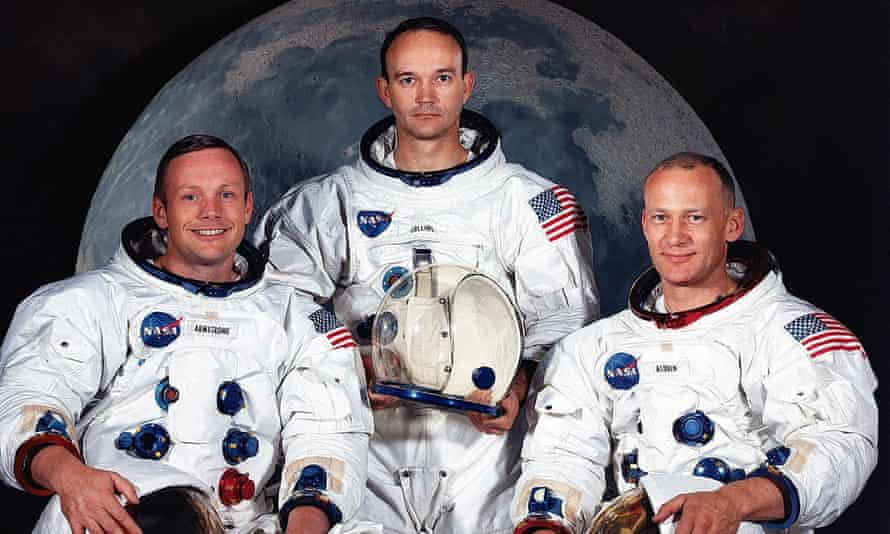Extract from The Guardian
Collins, known as the ‘forgotten astronaut’, kept command module flying while Neil Armstrong and Buzz Aldrin walked on the moon.

Michael Collins, center, with Neil Armstrong, left, and Buzz Aldrin in May 1969. Armstrong was 82 when he died in 2012. Aldrin is still alive and lives in New Jersey, at 91.
Last modified on Thu 29 Apr 2021 04.32 AEST
Michael Collins, who was part of the Apollo 11 original moon landing crew and kept the command module flying while Neil Armstrong and Buzz Aldrin became the first humans to walk on the moon, has died at the age of 90, his family said on Wednesday.
Collins had cancer. He was sometimes known as the “forgotten astronaut” because he didn’t get to land on the moon, while Armstrong and Aldrin became household names.
But his role in the three-man mission in 1969 was just as crucial and his task to keep the module circling and piloting it as his team mates departed from the module in the Eagle lander and then returned safely, was just as crucial, nerve-racking and exciting for the mission as a whole.
A statement released by Collins’s family on Wednesday, including a tweet, said: “We regret to share that out beloved father and grandfather passed away today, after a valiant battle with cancer. He spent his final days peacefully.”
It adds further on that the family hopes people will celebrate his joy, sharp wit and “his quiet sense of purpose, and his wise perspective, gained both from looking back at Earth from the vantage of space and gazing across calm waters from the deck of his fishing boat”.
A statement from the acting Nasa administrator, Steve Jurczyk, read: “Today the nation lost a true pioneer and lifelong advocate for exploration in astronaut Michael Collins. As pilot of the Apollo 11 command module – some called him ‘the loneliest man in history’ – while his colleagues walked on the Moon for the first time, he helped our nation achieve a defining milestone. He also distinguished himself in the Gemini Program and as an Air Force pilot.”
“His own signature accomplishments, his writings about his experiences, and his leadership of the National Air and Space Museum helped gain wide exposure for the work of all the men and women who have helped our nation push itself to greatness in aviation and space. There is no doubt he inspired a new generation of scientists, engineers, test pilots, and astronauts.
Armstrong was 82 when he died in 2012. Aldrin is still alive and lives in New Jersey, at 91.
The world held its breath as Armstrong first stepped on the moon in July, 1969, and radioed back to Earth the famous phrase: “Houston, Tranquility Base here, the Eagle has landed.”
All the while, Collins was in orbit, 60 miles above, extremely busy piloting the command module, and told Nasa back in Houston that the successful moon landing was “fantastic”.
Post-mission he said: “The thing I remember most is the view of planet Earth from a great distance. Tiny. Very shiny. Blue and white. Bright. Beautiful. Serene and fragile.”
At the time he was orbiting, he was always cut off from communications every time the Apollo 11 command module passed around the back side of the moon.
It was because of this part of the mission that some dubbed him the loneliest man in humanity, NPR reported. And as he recalled in a 2016 NPR interview, he didn’t think of it that way. He said, “The fact that I was … out of communications, rather than that being a fear, that was a joy because I got Mission Control to shut up for a little while. Every once in a while.”
“It’s a shame that when people are asked, ‘Can you name the Apollo 11 crew.’ Mike Collins is normally the name that doesn’t come to mind,” Francis French, of the San Diego Air and Space Museum and author of many books on the space program, told the radio network.
No comments:
Post a Comment